Local News
Nine Jewish (or half-Jewish) Members elected to House of Commons in Sept. 20 federal election
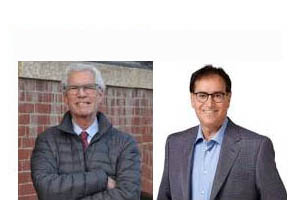
By BERNIE BELLAN The recent federal election saw the re-election of all eight Members of Parliament who were at least half Jewish and the addition of one new member, Melissa Lantsman, who won the seat of Thornhill for the Conservatives. Among the MPs who won re-election were: Jim Carr (Liberal) in Winnipeg South Centre and Marty Morantz (Conservative) in Headingley-St.James-Assiniboia-Charleswood.
The following information is taken largely from Wikipedia:
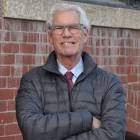 Jim Carr (Liberal, Winnipeg South Centre) has been a Member of Parliament since 2015.
Jim Carr (Liberal, Winnipeg South Centre) has been a Member of Parliament since 2015.
Carr was Minister of Natural Resources from 2015 to 2018, and Minister of International Trade Diversification from 2018 to 2019. He left Cabinet in 2019 after being diagnosed with cancer, but was named Trudeau’s special representative to the Prairies. In 2021, he returned to cabinet as a minister without portfolio while remaining special representative to the Prairies. He previously was a member of the Manitoba Legislature from 1988 to 1992 for the Manitoba Liberal Party.
 Martin B. “Marty” Morantz (Conservative, Charleswood—St. James—Assiniboia—Headingley) is a lawyer, businessperson, philanthropist and politician. He has served in the House of Commons as a Member of Parliament since the 2019 Canadian Federal Election.
Martin B. “Marty” Morantz (Conservative, Charleswood—St. James—Assiniboia—Headingley) is a lawyer, businessperson, philanthropist and politician. He has served in the House of Commons as a Member of Parliament since the 2019 Canadian Federal Election.
Prior to serving in the House of Commons, Morantz served as City Councillor for the Charleswood-Tuxedo-Whyte Ridge ward on Winnipeg City Council from 2014 to 2018 after his win in the 2014 Winnipeg municipal election. During his time on City Council, Morantz chaired both the Finance and Infrastructure committees and also served on the Executive Policy Committee.
 Leah Gazan (NDP, Winnipeg Centre), was born in Thompson, Manitoba to Albert and Marjorie Gazan. Gazan was first elected to the House of Commons in 219.
Leah Gazan (NDP, Winnipeg Centre), was born in Thompson, Manitoba to Albert and Marjorie Gazan. Gazan was first elected to the House of Commons in 219.
Gazan is Lakota-Chinese on her mother’s side, and Jewish on her father’s side. Gazan’s father, Albert Gazan, is a Holocaust survivor from the Netherlands, born in The Hague, South Holland in 1938.
Gazan previously taught at the University of Winnipeg prior to running in the 2019 election. She also served as president for the Social Planning council of Winnipeg.
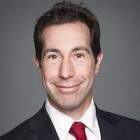 Anthony Housefather (Liberal, Mount Royal) was first elected to the House of Commons in 2015. Housefather holds two law degrees (B.C.L. and LL.B.) from McGill University, and an MBA from Concor-dia University’s John Molson School of Business. Before his election to federal office, he served as Executive Vice President, Corporate Affairs and General Counsel, at Dialogic Corporation, a multinational technology company.
Anthony Housefather (Liberal, Mount Royal) was first elected to the House of Commons in 2015. Housefather holds two law degrees (B.C.L. and LL.B.) from McGill University, and an MBA from Concor-dia University’s John Molson School of Business. Before his election to federal office, he served as Executive Vice President, Corporate Affairs and General Counsel, at Dialogic Corporation, a multinational technology company.
Housefather was a nationally ranked athlete as a student. He returned to competitive swimming in 2010, and earned seven medals (two silver, and five bronze) in swimming masters events at the 2013 Maccabiah Games in Israel, and five at the 2017 Maccabiah Games.
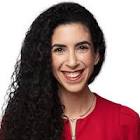 Rachel Bendayan (Liberal, Outremont), was first elected to the House of Commons in a by-election in 2019, then again in the general election that same year.
Rachel Bendayan (Liberal, Outremont), was first elected to the House of Commons in a by-election in 2019, then again in the general election that same year.
Bendayan was born and raised in a Jewish family of Moroccan origin. Bendayan studied law at McGill University and obtained her degree in 2007, specializing in commercial litigation and international arbitration. After graduating, Bendayan was employed by the Norton Rose Fulbright law firm and also teaches at the Faculty of Law of the University of Montreal.
 Julie Dabrusin (Liberal, Toronto-Danforth), was first elected to the House of Commons in 2015. Dabrusin earned university degrees in law and Middle Eastern studies. She then spent 13 years as an attorney with Rogers Partners LLP, as well as a year as commission counsel to an inquiry into government procurement. She and her family moved to the Danforth area in 1998. In 2011 she left her legal career to focus on raising her two daughters and participating in various community organizing and charitable activities aimed at promoting and preserving Toronto’s public parks. In 2013, she was a recipient of the Queen Elizabeth II Diamond Jubilee Medal.
Julie Dabrusin (Liberal, Toronto-Danforth), was first elected to the House of Commons in 2015. Dabrusin earned university degrees in law and Middle Eastern studies. She then spent 13 years as an attorney with Rogers Partners LLP, as well as a year as commission counsel to an inquiry into government procurement. She and her family moved to the Danforth area in 1998. In 2011 she left her legal career to focus on raising her two daughters and participating in various community organizing and charitable activities aimed at promoting and preserving Toronto’s public parks. In 2013, she was a recipient of the Queen Elizabeth II Diamond Jubilee Medal.
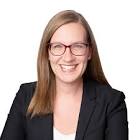 Karina Gould (Liberal, Burlington), was first elected to the House of Commons in 2019. Gould was born in 1987 and grew up in Burlington, Ontario in a family with three brothers. Her paternal grandparents were Czech Jews who survived the Holocaust.
Karina Gould (Liberal, Burlington), was first elected to the House of Commons in 2019. Gould was born in 1987 and grew up in Burlington, Ontario in a family with three brothers. Her paternal grandparents were Czech Jews who survived the Holocaust.
On January 10, 2017, she was appointed Minister of Democratic Institutions, becoming the youngest female cabinet minister in Canadian history.
 Ya’ara Saks (Liberal, York Centre), was elected to the House of Commons of Canada in a by-election on October 26, 2020, following the resignation of Michael Levitt.
Ya’ara Saks (Liberal, York Centre), was elected to the House of Commons of Canada in a by-election on October 26, 2020, following the resignation of Michael Levitt.
A dual citizen of Canada and of Israel, Saks was born in Toronto to an Israeli father and has lived in both Israel (1995 to 2006) and Canada. She attended McGill University for her undergraduate education, and then completed her Master’s degree in international relations and diplomacy at the Hebrew University of Jerusalem.
Saks was deeply critical of the direction of the Netanyahu government in Israel for its treatment of its Israeli Arab citizens and the 2018 Nation-State law and has expressed the concern that it is leading Israel to be “deeply racist towards its minorities and … not to see itself as a light and shelter or future home to asylum seekers fleeing war,” as well as its elevation of leadership at the expense of the justice system.
Despite her differences with the Likud government, Saks stated that she is “an unapologetic Zionist who believes passionately in the State of Israel” and that she condemns the BDS Movement (boycott, divestment and sanctions against Israel), considering it antisemitic.
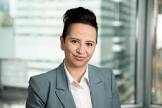 Melissa Lantsman (Conservative, Thornhill) is the first LGBTQ woman and first Jewish woman ever to be elected as a Conservative MP.
Melissa Lantsman (Conservative, Thornhill) is the first LGBTQ woman and first Jewish woman ever to be elected as a Conservative MP.
Lantsman was born in Toronto in 1984 to a Russian Jewish family and raised in Thornhill. Her mother was an accountant and her father was an engineer who worked in the taxi business and ran several pawn shops. She attended a French-immersion program at Langstaff Secondary School in the York Region and speaks fluent French in addition to English and Russian.
She attended University of Toronto and graduated with an Honours Bachelor of Arts. She later completed the Institute of Corporate Directors education program at the Rotman School of Management.
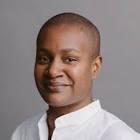 In other related news stemming from the election, Annamie Paul, who had become the first Black and first Jewish woman to lead a Canadian political party when she became leader of the Green party in 2020, finished fourth in the riding of Toronto Centre. Paul has now resigned as leader of the Greens.
In other related news stemming from the election, Annamie Paul, who had become the first Black and first Jewish woman to lead a Canadian political party when she became leader of the Green party in 2020, finished fourth in the riding of Toronto Centre. Paul has now resigned as leader of the Greens.
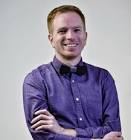 Finally, in perusing the names of candidates here in Manitoba, we came across the name of Aiden Kahanovitch, who ran for the NDP in Winnipeg South, where he finished third. We were intrigued by the name and inquired of Aiden whether he was Jewish and possibly related to Phil Kahanovitch. Aiden responded: “Yes, I am related to Phil Kahanovitch. I am not Jewish myself, but married into the family and took my husband’s last name. Phil is my father-in-law.”
Finally, in perusing the names of candidates here in Manitoba, we came across the name of Aiden Kahanovitch, who ran for the NDP in Winnipeg South, where he finished third. We were intrigued by the name and inquired of Aiden whether he was Jewish and possibly related to Phil Kahanovitch. Aiden responded: “Yes, I am related to Phil Kahanovitch. I am not Jewish myself, but married into the family and took my husband’s last name. Phil is my father-in-law.”
Local News
Winnipeg Jewish Theatre breaks new ground with co-production with Rainbow Stage

By MYRON LOVE Winnipeg Jewish Theatre is breaking new ground with its first ever co-production with Rainbow Stage. The new partnership’s presentation of “Fiddler on the Roof” is scheduled to hit the stage at our city’s famed summer musical theatre venue in September 2026.
“We have collaborated with other theatre companies in joint productions before,” notes Dan Petrenko, the WJT’s artistic and managing director – citing previous partnerships with the Segal Centre for the Performing Arts in Montreal, the Harold Green Jewish Theatre in Toronto, Persephone Theatre in Saskatoon and Winnipeg’s own Dry Cold Productions. “Because of the times we’re living through, and particularly the growing antisemitism in our communities and across the country, I felt there is a need to tell a story that celebrates Jewish culture on the largest stage in the city – to reach as many people as possible.”
Last year, WJT approached Rainbow Stage with a proposal for the co-presentation of “Fiddler on the Roof.” Rainbow Stage management was really enthusiastic in their response, Petrenko reports.
“We are excited to be working with Winnipeg’s largest musical theatre company,” he notes. “Rainbow Stage has an audience of more than 10,000 people every season. Fiddler is a great, family-oriented story and, through our joint effort with Rainbow Stage, WJT will be able to reach out to new and younger audiences.”
“We are also working to welcome more diverse audiences from other communities, as well as newcomers – families who have moved here from Israel, Argentina and countries of the former Soviet Union.”
Helping Petrenko to achieve those goals are two relatively new and younger additions to WJT’s management team. Both Company Manager Etel Shevelev, and Head of Marketing Julia Kroft are in their 20s – as is Petrenko himself.
Kroft, who is also Gray Academy’s Associate Director of Advancement and Alumni Relations, needs little or no introduction to many readers. In addition to her work for Gray Academy and WJT, the daughter of David and Ellen Kroft has been building a second career as a singer and actor. Over the past few years, she has performed by herself or as part of a musical ensemble at Jewish community events, as well as in various professional theatre productions in the city.
Etel Shevelev is also engaged in a dual career. In addition to working full time at WJT, she is also a Fine Arts student (majoring in graphic design) at the University of Manitoba. Outside of school, she is an interdisciplinary visual artist (exhibiting her work and running workshops), so you can say the art world is no stranger to her.
(She will be partcipating in Limmud next month as a member of the Rimon Art Collective.)
Shevelev grew up in Kfar Saba (northeast of Tel Aviv). She reports that in Israel she was involved in theatre from a young age. “In 2019, I graduated from a youth theatre school, which I attended for 11 years.” In a sense, her work for WJT brings her full circle.
She arrived in Winnipeg just six years ago with her parents. “I was 19 at the time,” she says.
After just a year in Winnipeg, her family decided to relocate to Ottawa, while she chose to stay here. “I was already enrolled in university, had a long-term partner, and a job,” she explains. “I felt that I was putting down roots in Winnipeg.”
Etel expects to graduate by the end of the academic year, allowing her to focus on the arts professionally full-time.
In her role as company manager, Shevelev notes, she is responsible for communications with donors, contractors, and unions, as well as applying for various grants and funding opportunities.
In addition, her linguistic skills were put to use last spring for WJT’s production of “The Band’s Visit,” a story about an Egyptian band that was invited to perform at a cultural centre opening ceremony in the lively centre of Israel, but ended up in the wrong place – a tiny, communal town in southern Israel. Shevelev was called on to help some of the performers with the pronunciation of Hebrew words and with developing a Hebrew accent.
“I love working for WJT,” she enthuses. “Every day is different.”
Shevelev and Petrenko are also enthusiastic about WJT’s next production – coming up in April: “Ride: The Musical” debuted in London’s West End three years ago, and then went on to play at San Diego’s Old Globe theatre to rave reviews. The WJT production will be the Canadian premiere!
The play, Petrenko says, is based on the true story of Annie Londonderry, a young woman – originally from Latvia, who, in 1894, beat all odds and became the first woman to circle the world on a bicycle.
Petrenko is also happy to announce that the director and choreographer for the production will be Lisa Stevens – an Emmy Award nominee and Olivier Award winner. (The Olivier is presented annually by the Society of London Theatre to recognize excellence in professional London theatre).
“Lisa is in great demand across Canada, and the world really,” the WJT artistic director says. “I am so thrilled that we will be welcoming one of the greatest Jewish directors and choreographers of our time to Winnipeg this Spring.”
For more information about upcoming WJT shows, readers can visit wjt.ca, email the WJT office at info@wjt.ca or phone the box office at 204-477-7515.
Local News
Rising Canadian comedy star Rob Bebenek to headline JCFS’ second annual “Comedy for a Cause”

By MYRON LOVE Last year, faced with a federal government budget cut to its Older Adult Services programs, Jewish Child and Family Service launched a new fundraising initiative. “Comedy with a Cause” was held at Rumor’s Comedy club and featured veteran Canadian stand-up comic Dave Hemstad.
That evening was so successful that – by popular demand – JCFS is doing an encore. “We were blown away by the support from the community,” says Al Benarroch, JCFS’s president and CEO.
“This is really a great way to support JCFS by being together and having fun,” he says.
“Last year, JCFS was able to sell-out the 170 tickets it was allotted by Rumor’s,” adds Alexis Wenzowski, JCFS’s COO. “There were also general public attendees at the event last year. Participants enjoyed a fun evening, complete with a 50/50 draw and raffle. We were incredibly grateful for those who turned out, the donors for the raffle baskets, and of course, Rumor’s Comedy Club.
“Feedback was very positive about it being an initiative that encouraged people to have fun for a good cause: our Older Adult Services Team.”
This year’s “Comedy for a Cause” evening is scheduled for Wednesday, February 25. Wenzowski reports that this year’s featured performer, Rob Bebenek, first made a splash on the Canadian comedy scene at the 2018 Winnipeg Comedy festival. He has toured extensively throughout North America, appearing in theatres, clubs and festivals. He has also made several appearances on MTV as well as opening shows for more established comics, such as Gerry Dee and the late Bob Saget.
For the 2026 show, Wenzowski notes, Rumors’ is allotting JCFS 200 tickets. As with last year, there will also be some raffle baskets and a 50/50 draw.
“Our presenting sponsors for the evening,” she reports, “are the Vickar Automotive Group and Kay Four Properties Incorporated.”
The funds raised from this year’s comedy evening are being designated for the JCFS Settlement and Integration Services Department. “JCFS chose to do this because of our reduction in funding last year by the federal government to this department,” Wenzowski points out.
“Last year alone,” she reports, “our Settlement and Integration Services team settled 118 newcomer families – from places like Israel, Mexico, Brazil, and Argentina. Each year, our program supports even more newcomer families with things like case management, supportive counselling, employment coaching, workshops, programming for newcomer seniors, and more.”
“We hope to raise more than $15,000 through this event for our Settlement and Integration Program,” Al Benarroch adds. “The team does fantastic work, and we know that our newcomer Jewish families need the supports from JCFS. I want to thank our sponsors, Rumor’s Comedy Club, and attendees for supporting us.”
Tickets for the show cost $40 and are available to purchase by calling JCFS (204-477-7430) or by visiting here: https://www.zeffy.com/en-CA/ticketing/jcfs-comedy-for-a-cause. Sponsorships are still available.
Local News
Ninth Shabbat Unplugged highlight of busy year for Winnipeg Hillel

By MYRON LOVE Lindsay Kerr, Winnipeg’s Hillel director, is happy to report that this year’s ninth Shabbat UnPlugged, held on the weekend of January 9-11, attracted approximately 90 students from 11 different universities, including 20 students who were from out of town.
Shabbat UnPlugged was started in 2016 by (now-retired) Dr. Sheppy Coodin, who was a science teacher at Gray Academy, along with fellow Gray Academy teacher Avi Posen (who made aliyah in 2019) – building on the Shabbatons that Gray Academy had been organizing for the school’s high school students for many years.
The inaugural Shabbat UnPlugged was so successful that Coodin and Posen did it again in 2017 and took things one step further by combining their Shabbat UnPlugged with Hillel’s annual Shabbat Shabang Shabbaton that brings together Jewish university students from Winnipeg and other Jewish university students from Western Canada.
As in the past, this year’s Shabbat UnPlugged weekend was held at Lakeview’s Hecla Resort. “What we like about Hecla,” Kerr notes, “is that they let us bring in our own kosher food, it is out of the city and close to nature for those who want to enjoy the outdoors.”
The weekend retreat traditionally begins with a candle lighting, kiddush and a traditional Shabbat supper. Unlike previous Shabbats UnPlugged, Kerr points out, there were no outside featured speakers this year. All religious services and activities were led by students or national program partners.
The weekend was funded in part by grants from CJPAC and StandWithUs Canada, along with the primary gift from The Asper Foundation.
Kerr reports that the activities began with 18 of our local Jewish university students participating in a new student Shabbaton – inspired by Shabbat Unplugged, titled “Roots & Rising.”
In addition to Shabbat Unplugged, Hillel further partnered with Chabad for a Sukkot program in the fall, as well as with Shaarey Zedek Congregation and StandWithUs Canada for a Chanukah program. Hillell also featured a commemoration of October 7, an evening of laser tag and, in January, a Hillel-led afternoon of ice skating.
Coming up this month will be a visit to an Escape Room – and a traditional Shabbat dinner in March.
Kerr estimates that there are about 300 Jewish students at the University of Manitoba and 100 at the University of Winnipeg.
“Our goal is to attract more Jewish students to take part in our programs and connect with our community,” she comments.


